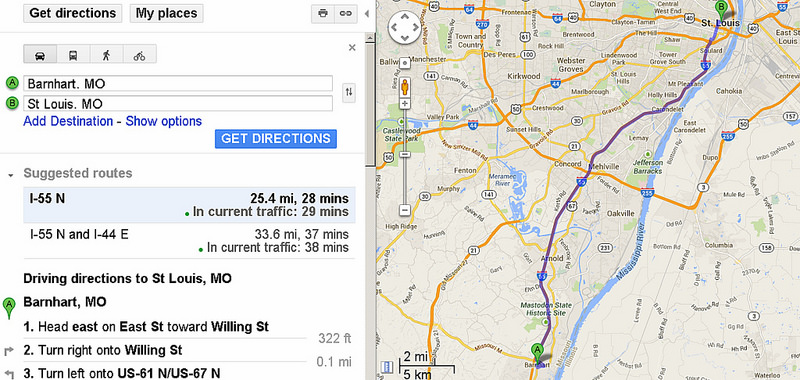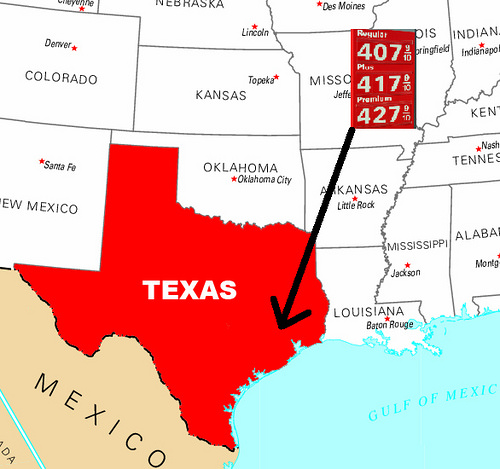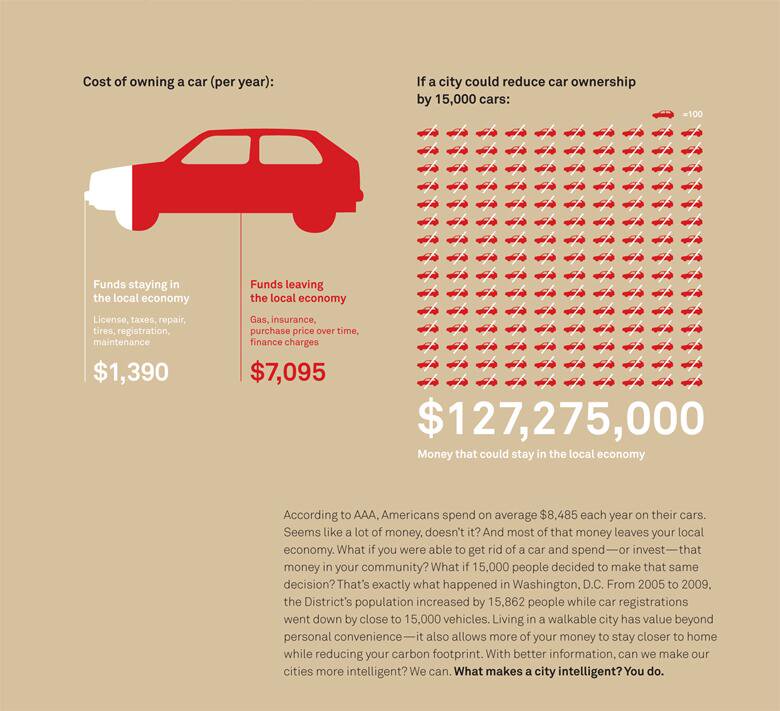
This is America, and you absolutely have the right to choose where you live even if that includes a long commute, but from the perspective of the state and local community it’s a disaster and should, at the very least, not be encouraged.
Oil makes us wealthier by facilitating the trade of goods across long distances. It enhances our quality of life by enabling us to access a myriad of leisure options. But when it comes to commuting or running errands, it makes us poorer. For the commuter it leaves less money in his pocket for other things. The long commute lowers quality of life by wasting time.
For the state and region long commutes make us poorer through the amount of infrastructure we have to build and maintain. It sends wealth away from the region via the gas pumps. The greater proportion of the wealth created locally that is kept here the better. Our governments should be trying to keep it here, not help send it away by building more roads and encouraging auto-oriented development patterns.

The reason Texas is growing, aside from huge amounts of immigration, is that its oil industry receives wealth from all over the country. Consider how much of our wealth leaves the local economy in support of our commutes.
The region that’s the best at this is Washington DC. Its main industry is fantastic at vacuuming up wealth from the rest of the country. The DC metro has six of the top ten highest median income counties.
We’re never going to have an oil industry, the nation’s capital, or Wall Street, but we should be making every effort to get better at this game. That’s why it’s important to nurture our start-up scene. It’s another reason to not give incentives to retailers. It was the point of the China Hub. It was meant to provide a conduit for Missouri goods to get to China and for their wealth to come back here. But we freaked out over the word China, and we’re still scratching our heads over why we’re a slow growth state and region.
If you like your long commute, you can keep it, but the state and local government should make sure its true costs are borne by you and not socialized across the community.

{According to Walkable DFW 84% of vehicle ownership costs leaves the local economy}

